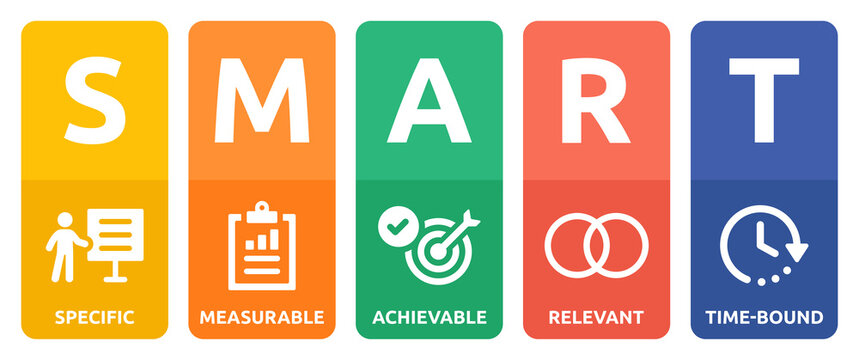5 Tips To Become A Good Leader In Virtual Event Management

Photo by Gabriel Benois @ unsplash
Today, virtual events have become the norm after the coronavirus pandemic necessitated face-to-face events to move online. Although unplanned, this shift was quite successful because virtual events had several benefits. This includes generating leads, saving money, building your brand, and boosting engagement with your existing and potential clients. In addition, virtual events give you the freedom to host the event from anywhere.
But despite its numerous benefits, hosting a virtual event often feels overwhelming. If you’re tense and stressed out because of this, here’s a guide on how you can become a good leader in virtual event management.
What Are Virtual Events?
Virtual events refer to events conducted online, such as a corporate virtual happy hour. These events connect people through online platforms such as Twitter and Instagram, to name a few, either through a voice call or video chat. Virtual events can be private or public. A virtual private event works by attending only after getting an invite, whereas a public event is available to everyone.
Examples of virtual events include masterclasses, conferences, webinars, interviews, or panels. The popularity of virtual events has skyrocketed since 2020 after the coronavirus, which led to restrictions on public gatherings. This trend persists even today and is preferred because it allows you to reach a larger target audience while comfortably at home. It’s also a lot cheaper than hosting a physical event.
Tips For Hosting Virtual Events
You can only be a good leader at a virtual event by learning a couple of useful tips, and these include:
1. Set Clear Goals
Attendees of your virtual event have many alternative options on how they spend their time. Therefore, the last thing they want is you to waste their precious time. You can prevent this by setting clear goals for the event right from the beginning. These goals need to be specific, measurable, attainable, relevant, and time-based (SMART), and this will help you have control of the entire event once it starts.

It’s only with these goals set that you’ll be able to determine whether the virtual event will be successful or not. But without clearly defined goals, you can’t effectively measure your success. To identify your goals, you need to ask yourself a few questions such as:
- Do you want to generate brand awareness?
- Do you want to educate people about a product or service?
- Are you trying to entertain your target audience?
- Do you want to do all of these things together?
With such clear goals about why you’re hosting the virtual event in the first place, you’ll be on track to ensuring everything is a success.
2. Keep Your Sessions Short
One of the most critical aspects of your virtual event is keeping it fresh and energetic for your audience. This can be very challenging because your participants view you from home and can be easily distracted by their surroundings.
To prevent this, you must keep your virtual event sessions short and ensure they last no longer than 45 minutes to an hour. Every session needs to be short, or else your audience will be disengaged. If you have a lot of things you want to cover, consider having shorter sessions throughout the day or week instead of one big all-day event. However, make sure that your virtual event doesn’t have more than three to four sessions per day.
Supplementary reading: Sales Training: 7 Strategies in Knowledge Retention
3. Encourage Participation And Asking Of Questions
Virtual events can be hard to engage with. This is expected because people are used to going to a physical meeting, passively absorbing information, and returning home. You need to think of appealing ways to keep your audience engaged during your virtual event.
One effective strategy for boosting participation during a virtual event is polls and Q&A during the event. Some of the questions you can ask the audience should try and elaborate on:
- Issues that need further clarification.
- Anything that they haven’t understood after each session.
- Something you haven’t discussed and they wish to learn.
You can get questions from your audience by allowing them to send them over through the chatbox and giving them an appropriate answer. This Q&A session will help keep your audience more active during the virtual meeting. Incorporating the polls and Q&A into your virtual event and encouraging engagement also helps participants express their opinions on a specific topic.
4. Choose The Right Platform To Host Your Virtual Event
Communication is key to a successful event, and it’s even more important when hosting a virtual event. Therefore, you must make sure you know all the details of your event and that you’re able to communicate those details clearly to your audience. You can’t achieve this without having the right medium to keep things running smoothly and make your guests feel like part of a group. Understanding the different ways through which you can connect with your audience is crucial to selecting the best platform for your event.
It’s best to use a video conferencing tool where everyone can see each other such as Zoom. Other events may be better suited for a webinar or live stream format where participants can easily submit questions and comments into the chatbox. You can also decide that your virtual event uses the video conferencing tool and a webinar option.
5. Set Your Agenda
Besides having a compelling headline, your virtual meeting also needs a set agenda. This is crucial because you want everyone to know what they should expect beforehand. Therefore, make sure to send out an agenda. You must also review all the materials needed to ensure people know where to log in and how to get support if they’re having trouble connecting.
Read more: Productivity Tips From The Experts
When creating an agenda, you should start by creating an outline of the main takeaways you want to discuss. After that, incorporate questions that would engage participants and allow you to share your tips and tricks. Right before your virtual event, make sure to review your agenda again so that everything is fresh in your mind. This way, if anything goes off track, you could easily jump back into the flow and get your audience back on track quickly.
Takeaway
Hosting virtual events can be trickier than it sounds. And just because your event is online doesn’t mean you can kick back and relax. You might probably do more work than usual. This is because many things can go wrong during virtual events. To ensure you become a great leader during a virtual event, this guide has outlined several must-know tips to consider.
For a better visual representation of your event plan, take a look at this article from Creately
About Author: James Gregory is a professional event organiser with more than 10 years of experience in the industry. He enjoys sharing his insights by writing blogs and guest blogs to enlighten other aspiring event organisers. During his free time, he loves spending time with his family and friends and exploring outdoor activities such as hiking, camping, and boar riding.
Don't forget to check out the media below:
If you want to read more on the topic above, there is a good compilation of articles in this amazing learning app called Necole. Necole is a state of the art learning platform that curates personalised learning just for you. **SPECIAL OFFER - Use this code ABETTERME and get a 5% discount on your subscription to Necole. To find out more about Necole or to subscribe, click here.
Leadership
Tags: Be A Leader, Women & Leadership, Consultant Corner, Executing Leadership
This article is published by the editors of Leaderonomics.com with the consent of the guest author.










